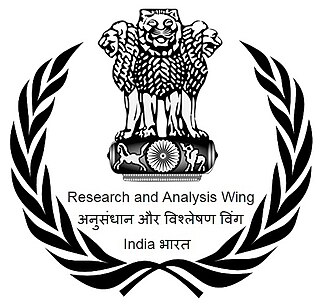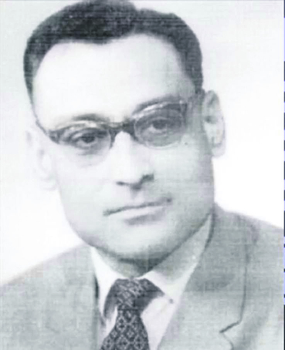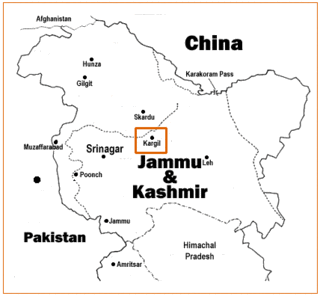Related Research Articles

The Research and Analysis Wing is the foreign intelligence agency of India. The agency's primary function is gathering foreign intelligence, counter-terrorism, counter-proliferation, advising Indian policymakers, and advancing India's foreign strategic interests. It is also involved in the security of India's nuclear programme.
The National Security Council (NSC) of India is an executive government agency tasked with advising the Prime Minister's Office on matters of national security and strategic interest. It was established by the former Prime Minister of India Atal Bihari Vajpayee on 19 November 1998, with Brajesh Mishra as the first National Security Advisor. Prior to the formation of the NSC, these activities were overseen by the Principal Secretary to the preceding Prime Minister.
The International Strategic Research Organization is an independent think-tank established in 2004. It pursues interdisciplinary studies on national and international political, economic and security issues.

Rameshwar Nath Kao was an Indian spymaster and the first chief of India's external intelligence agency, the Research and Analysis Wing (R&AW) from its founding in 1968 to 1977. Kao was one of India's foremost intelligence officers, and helped build R&AW.

The Manohar Parrikar Institute for Defence Studies and Analyses (MP-IDSA), New Delhi, is India's foremost think tank for advanced research in international relations, especially defence, strategic and security issues, and providing training to civilian, military and paramilitary officers of the Indian government. It is funded by the Indian Ministry of Defence but operates as a non-partisan and autonomous body. It aims to promote national and international security by carrying out research on defence and security-related issues and disseminating the knowledge among the policy-makers and wider public.

Brajesh Chandra Mishra was an Indian diplomat from the Indian Foreign Service and politician, best known for serving as Prime Minister Atal Bihari Vajpayee's principal secretary and National Security Advisor from 1998 to 2004. He received Padma Vibhushan for his contribution

The Economic Research Institute for ASEAN and East Asia or ERIA is an international organization established in Jakarta, Indonesia in 2008 by a formal agreement among Leaders of 16 countries in the East Asian region to conduct research activities and make policy recommendations for further economic integration in the East Asia. ERIA works very closely with both the ASEAN Secretariat and 16 Research Institutes to undertake and disseminate policy research under the three pillars, namely “Deepening Economic Integration”, ”Narrowing Development Gaps”, and “Sustainable Development” and provide analytical policy recommendations to Leaders and Ministers at their regional meetings. ERIA provides intellectual contributions to East Asian Community building and serves as a Sherpa international organization. ERIA Ranks 9th among the world's "Top International Economics Think Tanks" according to the 2020 Global Go To Think Tanks Index Report conducted by the University of Pennsylvania.

Arvind Panagariya is an Indian-American economist who is the Jagdish Bhagwati Professor of Indian Political Economy at Columbia University and is also the Director of Deepak and Neera Raj Center on Indian Economic Policies at School of International and Public Affairs at Columbia University in New York City. He served as first vice-chairman of the government of India think-tank NITI Aayog between January 2015 and August 2017. He is a former Chief Economist of the Asian Development Bank. He was awarded the Padma Bhushan by the President of India in 2012 for his contributions in the field of economics and Public Policy. He is an authority on free trade and widely regarded as the foremost expert in the world on Indian economy.
Bahukutumbi Raman, also referred to as B. Raman, was an Additional Secretary of the Cabinet Secretariat of the Government of India and head of the counter-terrorism division of the Research and Analysis Wing. Until his death in 2013, he was the director of the Institute for Topical Studies, Chennai. B. Raman was also a contributor to the South Asia Analysis Group (SAAG). As a former intelligence official, B. Raman regularly wrote about security, counter-terrorism and military issues regarding India and South Asia. He was considered one of India's foremost security experts.

Dr. W. Lawrence S. Prabhakar, M.A, Ph.D. is an associate professor of Strategic Studies and International Relations in the department of Political Science at Madras Christian College, India and Adjunct Research Fellow, S.Rajaratnam School of International Studies, Nanyang Technological University, Singapore.

United Service Institution of India (USI) is a national security and defence services think tank based in New Delhi, India. It describes its aim as the "furtherance of interest and knowledge in the art, science and literature of the defence services".
The Vivekananda International Foundation (VIF) is an Indian public policy think-tank. It is considered to be aligned to right-of-centre in its policies.

Commodore Chitrapu Uday Bhaskar is a retired military officer who served in the Indian Navy. He is one of India's leading experts and outspoken critics on security and strategic affairs.

Centre for Public Policy Research (CPPR) is an independent non-profit research organization located in Kochi, India. It was established in the year 2004. It conducts professional research, integrating developments in the areas of education, livelihood, governance, urban reforms and environment. The four focus study centers are: CPPR Centre for Urban Studies, CPPR Centre for Comparative Studies, CPPR Centre for Strategic Studies and CPPR Academy.

Vikram Sood is the former head of India's foreign intelligence agency, the Research and Analysis Wing (R&AW), and an advisor to the Observer Research Foundation, an independent public policy think tank in New Delhi. Sood was an officer of the Indian Postal Service (IPoS) before he joined the intelligence organisation R&AW and later served as its spymaster from 2000 to 2003. He retired as a career intelligence officer with 31 years of service on 31 March 2003.
Vappala Balachandran is an Indian national security intelligence specialist. He worked as a police officer in Maharashtra in the 1960s and early 70s, and subsequently for the Cabinet Secretariat of the Government of India, where he was appointed Special Secretary.
Dr. Geeta Madhavan is a lawyer and professor in Chennai, India. She is the first woman in India to have done her Ph.D. in Law on international terrorism, and is an expert on international terrorism and maritime law. She is a consultant on international law offering her expertise to academic departments that feature international relations programs. She was a founder member of the Centre for Security Analysis, Chennai. She is currently the President of InternationalLaw and Strategic Analysis Institute (ILSAI) in Chennai. Madhavan lives in Chennai.

The Kargil Review Committee (KRC) was set up by the Government of India on 29 July 1999, three days after the end of the Kargil War. The committee was set up "to examine the sequence of events and make recommendations for the future".
References
- 1 2 Asian Studies Network Information Center: South Asian Links
- ↑ South Asia Analysis Group. "September 11 Web Archive Record: SAAG". Library of Congress.
- ↑ "About Us". South Asia Analysis Group.
- ↑ Stinger in the tail of US policy Asia Times - September 19, 2001
- ↑ Energy Needs Tie India, China Wall Street Journal - March 3, 2005
- 1 2 "South Asia Analysis Group". Intute.
- 1 2 "Government & Politics of South Asia". Columbia University.